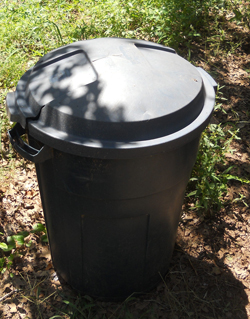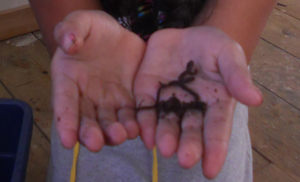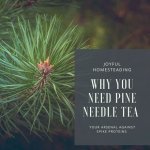Benefits to Organic Gardening
Benefits to organic gardening include healthy food, wise stewardship of your land and a better world. Just imagine how much better the world would be if everyone did their part and grew their own food organically.
Still skeptical about the benefits? Then read on. Here are five benefits to organic gardening.

Benefits to Organic Gardening
1. Healthiest Food Out There
Commercially-produced food is sprayed and fed with chemicals, which means you are eating a diet of pesticides every time you eat this food, even if you wash it well.
Not only that, but some of the fruits and vegetables now are gmos, meaning they are a frankenstein food made from splicing the genes of plants with animal genes.
Do you really want to eat that and give it to your children?
By growing your own organic produce, you can provide your family with clean, healthy food that will improve your health and promote healing.

With a simple trash barrel and lid you can make your own homemade fertilizer to feed and strengthen the plants in your garden.
The Benefits to Organic Gardening
2. Wise Stewardship
Commercial farming tends to rape the land, but not so with organic gardening. Instead you are being a wise steward of the land allotted you, whether it's five acres or a small, backyard lot.
With organic gardening you feed the soil, as well as improve it.

With organic gardening, you improve and heal the soil using natural methods, such as earthworms.
Just imagine how healed the earth would become if everyone practiced organic gardening?
Benefits to Organic Gardening
3. It's Frugal, Self-Sufficient Homesteading At It's Best
With organic gardening, you compost to build new soil, as well as grow plants that attract beneficial insects, bypassing the need for costly fertilizers and insecticides. By growing heirloom vegetables, you can save the seeds, so that you pay less in the long run. No running to a commercial greenhouse every spring.
Thus, you grow your own, healthy food self-sufficiently, a skill that will pay off should an EMP or other financial disaster strike.
Benefits to Organic Gardening
4. You Save the Environment
Pesticides may get rid of those garden pests, but they also poison other beneficial insects and birds in the process. Plus those chemicals you use to feed plants (which do nothing to improve the soil, by the way) eventually seep down into water tables and are washed into streams and rivers, polluting our water.
Not only that, commercial farming wastes water and causes soil erosion, wreaking havoc with our environment. Farming equipment use a tremendous amount of fossil fuels. Imagine how much you can help the environment if you do your part and grow your own food organically.
By gardening organically, we can save water and soil erosion by mulching our plants. We can improve the health and fertility of our soil.
Benefits to Organic Gardening
5. It's a Healthier, More Satisfying
Way to Live
Gardening is a great way to enjoy being outdoors and exercise on a regular basis. Yes, it can be hard work sometimes, but it is also satisfying work. There's nothing more exciting than seeing seedlings bud out and to harvest your own fresh, safe produce.
Learn More About Organic Gardening
Thinking about gardening the organic way? Follow these simple steps first.
Want to save even more money when gardening? Purchase bulk seeds for cost savings and self reliant preparation.
Get an early start on your gardening by starting your seeds indoors. Here are some tips.
Ready to grow your own vegetables, but you're not sure where to begin? Learn which vegetables are the easiest to grow by clicking here.
Are you thinking about putting in a garden? Follow these tips.
For healthy strong plants, put in raised beds.
Or avoid the digging altogether and put in these easier raised beds.
One of the benefits to organic gardening is healthy soil as well as healthy plants. For truly rich, healthy soil, learn how to make your own compost.
Protect your plants and keep down weeds by mulching. Here are some mulching tips.
Build up your soil, and you'll keep pests down to a minimum, but what happens if pests do attack your garden? Here are some pest control tips.
Gotten into poison ivy lately? Learn how to treat that awful itch. Here's how.
Do you have limited space? One of the benefits to organic gardening is you aren't limited to being a home owner to grow a garden. Consider growing your organic garden in containers.
Ready to have your own container garden? Here are some tips on finding the right garden container.
Gardening can be much more than a hobby; one of the benefits to organic gardening is it can also be a way to raise most of your food. Here's how.
If you want the richest humus for your gardening, consider composting with worms.
Want to have fresh greens for your salad all winter? Then build this easy, effective cold frame.
Get your garden off to the right start with strong growth and an early harvest. Learn how you can germinate seeds.
True self sufficiency means being able to produce your own excellent-quality seeds. Here's how.
To save seeds, you must start with quality plants. Learn why you should purchase the seeds of heirloom plants by clicking here.
Have you thought about organic gardening but don't know where to begin? Try these tips.
As homesteaders, we primarily think about gardening to raise food, but beauty is also important. Learn the importance of cottage gardening.
When planning your garden, don't forget to grow herbs. Not only do they smell nice and add flavoring to food, many also have healing qualities. Learn more.
Got a bumper crop of potatoes or other root vegetables this season? Learn an economical way to store them to keep them fresh all winter by clicking here.
The winter months are a perfect time for planning your spring garden. Learn more.
Summer garden not all you hoped it to be? Consider putting in a fall garden, but be sure to protect your plants from frosty nights. Learn how.
The ins and outs of storing produce from your garden can be found by clicking here.
If you had an abundant harvest of root vegetables this year, don't let them go to waste; store them using this time-proven method instead. Read more.
Ready for the strongest, healthiest garden ever with a bounteous produce? Learn how to make compost tea. Learn more.










New! Comments
Have your say about what you just read! Leave me a comment in the box below.